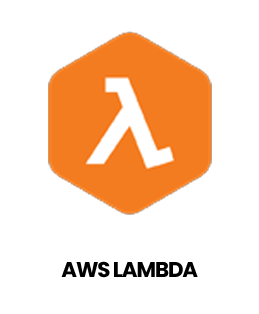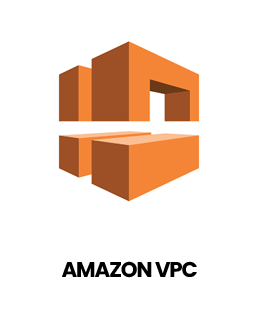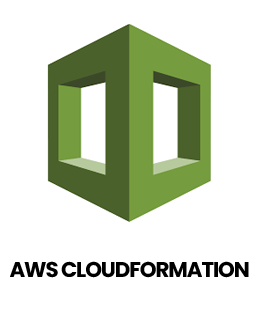We offer training for leading technology providers worldwide. If you have any questions, we will be happy to advise you on which learning paths and certifications are right for you. Realize your career goals, expand your knowledge of state-of-the-art IT solutions and prove your skills through IT certification! Fast Lane offers leading IT training for top technology vendors.
AWS is the combination of cultural philosophies, practices, and tools that increases an organization’s ability to deliver applications and services at high velocity: evolving and improving products at a faster pace than organizations using traditional software development and infrastructure management processes. This speed enables organizations to better serve their customers and compete more effectively in the market.
Amazon Web Services, popularly known as AWS Certification in the market, is a secure cloud service platform. It offers various functions for a business to scale up and grow such as computing power, content delivery, database storage and many other functionalities.
AWS Certification is a good career move for those who want to explore and grow in the field of cloud computing. With the help of AWS Certification , an individual, company, enterprises can get a cloud computing platform. For starting a career in AWS Certification as a fresher, first of all, you need to undergo training for AWS Certification .
Yes, you can get a job even when you are an AWS Certification fresher. But make sure you know all about AWS Certification Cloud. However, only learning about the AWS Certification cloud is not enough to get your hands on a good job.
We are happy and proud to say that we have strong relationship with over 700+ small, mid-sized and MNCs. Many of these companies have openings for AWS Certification . Moreover, we have a very active placement cell that provides 100% placement assistance to our students. The cell also contributes by training students in mock interviews and discussions even after the course completion.
AWS Certification is primarily an Infrastructure as a Service (IaaS) Cloud Platform. You need not know any programming to be successful in AWS Certification “mostly”. However, all of that depends on exact role you get into. If you are writing scripts/programs for automation/control of AWS Certification services, programming knowledge is a must.
- Having basic knowledge of operating systems like Windows OS, Linux etc
- As Visualization play a major role in AWS Certification you need to have the understanding of it
- Networking is an essential skill as all operations on cloud platform involves it.
- Understanding the difference between the Public and Private cloud
- Last but not the least, you must have basic command over coding
- AWS Certification , Python or C# Most architects have a software development background.
- Networking.
- Data storage fundamentals.
- Security foundations.
- AWS Certification service selection.
- Cloud-specific patterns and technologies.
- Communication.
Our courseware is designed to give a hands-on approach to the students in AWS Certification . The course is made up of theoretical classes that teach the basics of each module followed by high-intensity practical sessions reflecting the current challenges and needs of the industry that will demand the students time and commitment.
The future of AWS Certification is bright. Infact, it's the future of modern day computing. Cloud computing, machine learning, IOT, etc are some of the domains which have a lot to offer in the near future.
Depending on how much experience you already have, it’s possible to learn AWS Certification in 3 days with our instructor-led courses comprising of 18 hours of training. If you’re looking to gain AWS Certification certification this will take a little longer, as you’ll also need to prepare for the exam.
- Customization.
- Flexibility & Scalability.
- PaaS Offerings.
- Security.
- Scheduling.
- Recovery.
- Consistency.
- Global Architecture.
AWS Cloud Certifications Explained: Which Certification Is Right for You?
AWS currently offers 11 certifications, including six core certs and five specialty certs. AWS organizes its core certs into three tiers: starting with Foundational; and then advancing to Associate and Professional certs. The diagram below shows how AWS views the relationships between certifications each level.
Building your AWS Certification Plan
As a Principal Cloud Strategist for New Relic, people often ask me in what order they should take these exams. I recommend the following sequence for starting and turbocharging a cloud career:
- AWS Certified Solutions Architect (associate)
- AWS Certified Developer (associate)
- AWS Certified SysOps Administrator (associate)
- The speciality certs that interest you
- AWS Certified DevOps Engineer (professional)
- AWS Certified Solutions Architect (professional)
Note that this route does not include the AWS Certified Cloud Practitioner exam, which isn’t terribly useful for anyone in a technical role. I recommend folks in technical roles begin with the AWS Certified Solutions Architect (associate) exam and go from there. This certification also covers topics you’ll see again in the Developer and SysOps Administrator exams, which makes it a great up-front investment for anyone planning to take all three exams.
While the knowledge gained prepping for the Big Data, Network, and Security specialty certs will help you with the two professional level certifications, the other ones don’t offer that extra edge.
Planning your exam prep—today and in the future
The AWS platform has always been a hotbed of innovation—and of constant, often rapid-fire change. While there’s only so much AWS can do to address the impact of technology change on its exams, it does adhere to some guidelines that will keep your exam prep reasonably focused:
- AWS requires a new feature or service to be in general availability (GA) for at least six months before allowing it to appear on an exam.
- As noted in its exam guides, AWS will discuss in broad terms which “topic areas and objectives” you’ll find on an exam, although it won’t discuss specific features and services.
- AWS “regularly rotates questions in and out” of its exams, but every question should remain within the exam’s stated topic areas and objectives.
As for the exam prep process, you’ll want to see for yourself what’s available to get you ready for each exam. Based on my experience, however, serious and thorough preparation for an Associate level exam requires 120 hours or more—and the Specialty or Professional level exams will be even more demanding.
Many engineers, especially younger ones, get “into the zone” during their exam prep and take two, three, or even more exams within a matter of months. I know the feeling, but I also strongly suggest resisting the urge to “binge test.” Instead, take at least 3-6 months between each exam.
Consider this: You might be “in the zone” today, but what about three, or six, or even nine years down the line? When the time comes, preparing to re-certify once you have a family, and a career in mid-flight, and who knows what else happening in your life, could become an overwhelming burden if you find yourself with multiple certifications expiring within a short time period. A little foresight today can pay huge benefits throughout the rest of your career.
AWS certs are a better investment than ever
Taking AWS certification exams isn’t a very expensive process in terms of hard costs; you could take every available exam, including the beta specialty certs, for less than $1,500.
But the U.S. Department of Defense decision to award its massive (upwards of $10 billion) “JEDI” cloud-computing contract to Microsoft leads some practitioners to wonder: Is it still a good bet to go all-in with AWS certifications? Is Azure the wave of the future for the enterprise cloud?
Here’s my advice: AWS isn’t going away, and it’s even unlikely to give up its massive market-share advantage. Don’t think twice about pursuing a full course of AWS certifications, because it will pay off handsomely.
The fact is, Microsoft’s “JEDI” win simply reinforces the cloud’s role as the enterprise computing platform of the future. With so many firms still at the beginning of their own cloud journeys, and so many market opportunities waiting to be claimed.
AWS has many years of full-throttle growth—and undisputed market leadership—still to come. Stay focused on your career goals, plan and prepare carefully for these exams, and move ahead with confidence that you’ve got a winning—and lucrative—career-building strategy.








































